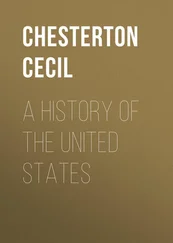Most modern history, especially in England, suffers from the same imperfection as journalism. At best it only tells half of the history of Christendom; and that the second half without the first half. Men for whom reason begins with the Revival of Learning, men for whom religion begins with the Reformation, can never give a complete account of anything, for they have to start with institutions whose origin they cannot explain, or generally even imagine. Just as we hear of the admiral being shot but have never heard of his being born, so we all heard a great deal about the dissolution of the monasteries, but we heard next to nothing about the creation of the monasteries. Now this sort of history would be hopelessly insufficient, even for an intelligent man who hated the monasteries. It is hopelessly insufficient in connection with institutions that many intelligent men do in a quite healthy spirit hate. For instance, it is possible that some of us have occasionally seen some mention, by our learned leader-writers, of an obscure institution called the Spanish Inquisition. Well, it really is an obscure institution, according to them and the histories they read. It is obscure because its origin is obscure. Protestant history simply begins with the horrible thing in possession, as the pantomime begins with the demon king in the goblin kitchen. It is likely enough that it was, especially towards the end, a horrible thing that might be haunted by demons; but if we say this was so, we have no notion why it was so. To understand the Spanish Inquisition it would be necessary to discover two things that we have never dreamed of bothering about; what Spain was and what an Inquisition was. The former would bring in the whole great question about the Crusade against the Moors; and by what heroic chivalry a European nation freed itself of an alien domination from Africa. The latter would bring in the whole business of the other Crusade against the Albigensians, and why men loved and hated that nihilistic vision from Asia. Unless we understand that there was in these things originally the rush and romance of a Crusade, we cannot understand how they came to deceive men or drag them on towards evil. The Crusaders doubtless abused their victory, but there was a victory to abuse. And where there is victory there is valour in the field and popularity in the forum. There is some sort of enthusiasm that encourages excesses or covers faults. For instance, I for one have maintained from very early days the responsibility of the English for their atrocious treatment of the Irish. But it would be quite unfair to the English to describe even the devilry of '98 and leave out altogether all mention of the war with Napoleon. It would be unjust to suggest that the English mind was bent on nothing but the death of Emmett, when it was more probably full of the glory of the death of Nelson. Unfortunately '98 was very far from being the last date of such dirty work; and only a few years ago our politicians started trying to rule by random robbing and killing, while gently remonstrating with the Irish for their memory of old unhappy far-off things and battles long ago. But however badly we may think of the Black-and-Tan business, it would be unjust to forget that most of us were not thinking of Black-and-Tan but of khaki; and that khaki had just then a noble and national connotation covering many things. To write of the war in Ireland and leave out the war against Prussia, and the English sincerity about it, would be unjust to the English. So to talk about the torture-engine as if it had been a hideous toy is unjust to the Spanish. It does not tell sensibly from the start the story of what the Spaniard did, and why. We may concede to our contemporaries that in any case it is not a story that ends well. We do not insist that in their version it should begin well. What we complain of is that in their version it does not begin at all. They are only in at the death; or even, like Lord Tom Noddy, too late for the hanging. It is quite true that it was sometimes more horrible than any hanging; but they only gather, so to speak, the very ashes of the ashes; the fag-end of the faggot.
The case of the Inquisition is here taken at random, for it is one among any number illustrating the same thing; and not because it is especially connected with St. Francis, in whatever sense it may have been connected with St. Dominic. It may well be suggested later indeed that St. Francis is unintelligible, just as St. Dominic is unintelligible, unless we do understand something of what the thirteenth century meant by heresy and a crusade. But for the moment I use it as a lesser example for a much larger purpose. It is to point out that to begin the story of St. Francis with the birth of St. Francis would be to miss the whole point of the story, or rather not to tell the story at all. And it is to suggest that the modern tail-foremost type of journalistic history perpetually fails us. We learn about reformers without knowing what they had to reform, about rebels without a notion of what they rebelled against, of memorials that are not connected with any memory and restorations of things that had apparently never existed before. Even at the expense of this chapter appearing disproportionate, it is necessary to say something about the great movements that led up to the entrance of the founder of the Franciscans. It may seem to mean describing a world, or even a universe, in order to describe a man. It will inevitably mean that the world or the universe will be described with a few desperate generalisations in a few abrupt sentences. But so far from its meaning that we see a very small figure under so large a sky, it will mean that we must measure the sky before we can begin to measure the towering stature of the man.
And this phrase alone brings me to the preliminary suggestions that seem necessary before even a slight sketch of the life of St. Francis. It is necessary to realise, in however rude and elementary a fashion, into what sort of a world St. Francis entered and what has been the history of that world, at least in so far as it affected him. It is necessary to have, if only in a few sentences, a sort of preface in the form of an Outline of History, if we may borrow the phrase of Mr. Wells. In the case of Mr. Wells himself, it is evident that the distinguished novelist suffered the same disadvantage as if he had been obliged to write a novel of which he hated the hero. To write history and hate Rome, both pagan and papal, is practically to hate nearly everything that has happened. It comes very near to hating humanity on purely humanitarian grounds. To dislike both the priest and the soldier, both the laurels of the warrior and the lilies of the saint, is to suffer a division from the mass of mankind for which not all the dexterities of the finest and most flexible of modern intelligences can compensate. A much wider sympathy is needed for the historical setting of St. Francis, himself both a soldier and a saint. I will therefore conclude this chapter with a few generalisations about the world that St. Francis found.
Men will not believe because they will not broaden their minds. As a matter of individual belief, I should of course express it by saying that they are not sufficiently catholic to be Catholic. But I am not going to discuss here the doctrinal truths of Christianity, but simply the broad historical fact of Christianity, as it might appear to a really enlightened and imaginative person even if he were not a Christian. What I mean at the moment is that the majority of doubts are made out of details. In the course of random reading a man comes across a pagan custom that strikes him as picturesque or a Christian action that strikes him as cruel; but he does not enlarge his mind sufficiently to see the main truth about pagan custom or the Christian reaction against it. Until we understand, not necessarily in detail, but in their big bulk and proportion that pagan progress and that Christian reaction, we cannot really understand the point of history at which St. Francis appears or what his great popular mission was all about.
Читать дальше












